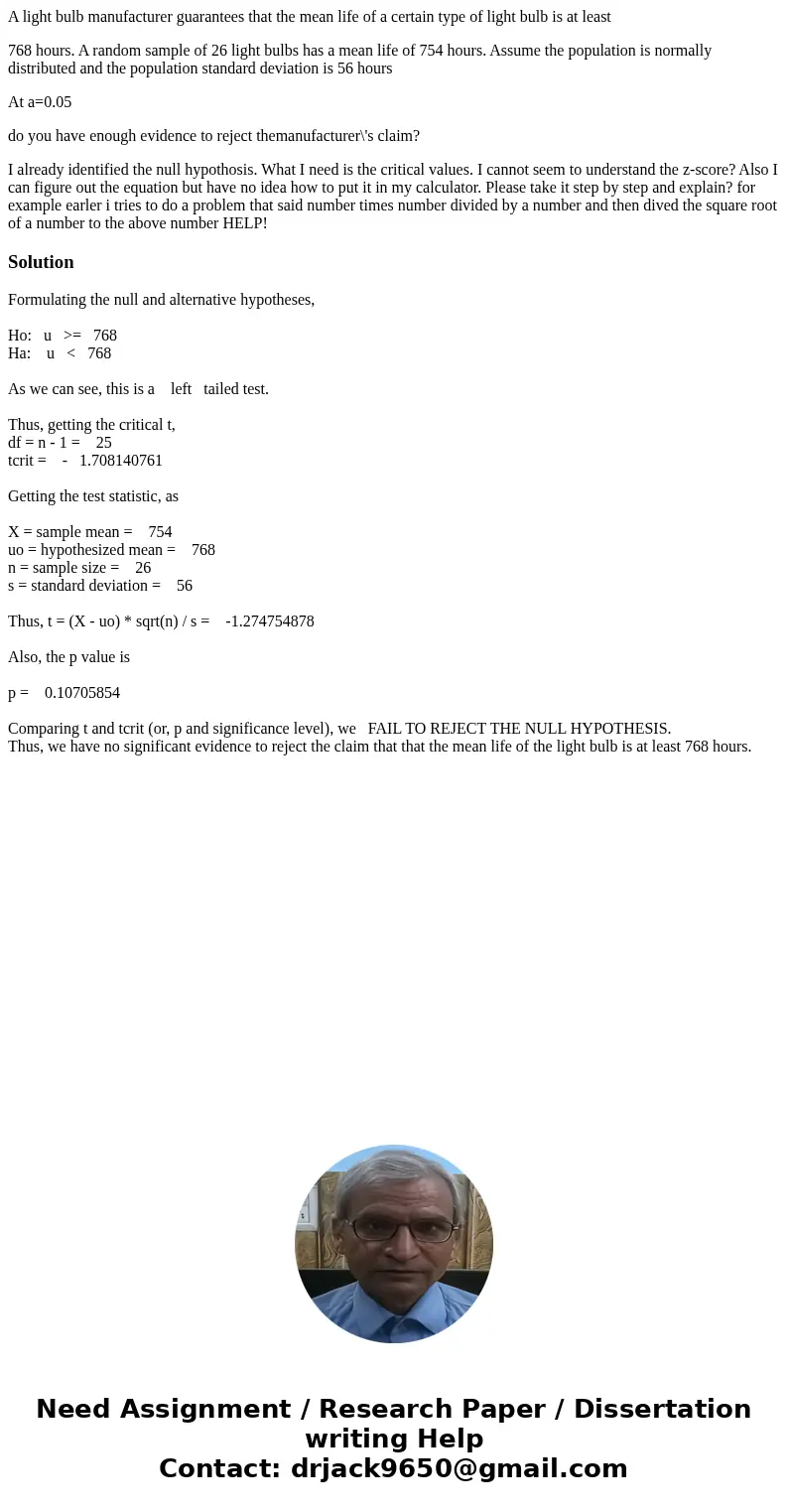A light bulb manufacturer guarantees that the mean life of a
A light bulb manufacturer guarantees that the mean life of a certain type of light bulb is at least
768 hours. A random sample of 26 light bulbs has a mean life of 754 hours. Assume the population is normally distributed and the population standard deviation is 56 hours
At a=0.05
do you have enough evidence to reject themanufacturer\'s claim?
I already identified the null hypothosis. What I need is the critical values. I cannot seem to understand the z-score? Also I can figure out the equation but have no idea how to put it in my calculator. Please take it step by step and explain? for example earler i tries to do a problem that said number times number divided by a number and then dived the square root of a number to the above number HELP!
Solution
Formulating the null and alternative hypotheses,
Ho: u >= 768
Ha: u < 768
As we can see, this is a left tailed test.
Thus, getting the critical t,
df = n - 1 = 25
tcrit = - 1.708140761
Getting the test statistic, as
X = sample mean = 754
uo = hypothesized mean = 768
n = sample size = 26
s = standard deviation = 56
Thus, t = (X - uo) * sqrt(n) / s = -1.274754878
Also, the p value is
p = 0.10705854
Comparing t and tcrit (or, p and significance level), we FAIL TO REJECT THE NULL HYPOTHESIS.
Thus, we have no significant evidence to reject the claim that that the mean life of the light bulb is at least 768 hours.

 Homework Sourse
Homework Sourse